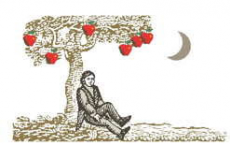
Email: reecejordan98@hotmail.co.uk
Total Article : 168
About Me:18-year-old sixth form student, studying English Literature, History and Government and Politics. My articles will broadly cover topics from the current affairs of politics to reviews of books and albums, as well as adding my own creative pieces, whether it be short fiction or general opinion.

I heard a thousand blended notes,
While in a grove I sate reclined,
In that sweet mood when pleasant thoughts
Bring sad thoughts to the mind.
To her fair works did Nature link
The human soul that through me ran;
And much it grieved my heart to think
What man has made of man.
Through primrose tufts, in that green bower,
The periwinkle trailed its wreaths;
And ’tis my faith that every flower
Enjoys the air it breathes.
The birds around me hopped and played,
Their thoughts I cannot measure:—
But the least motion which they made
It seemed a thrill of pleasure.
The budding twigs spread out their fan,
To catch the breezy air;
And I must think, do all I can,
That there was pleasure there.
If this belief from heaven be sent,
If such be Nature’s holy plan,
Have I not reason to lament
What man has made of man?
Wordsworth’s portrayal of nature in ‘Lines Written in Early Spring’ shows a conflict between rationale and instinct. The poem could be seen to show that, ‘what man has made of man’ is a distance from the joy of primal being. Upon looking at the nature around him, he notices that there is joy in its simple being: ‘every flower/enjoys the air it breathes’, ‘there was pleasure’ in the twigs ‘[catching] the breezy air’ and the ‘birds [hopping] and [playing]… seemed a thrill of pleasure’. These acts of joy in simple being are contrasted to the writer’s ‘sweet mood’ wherein ‘pleasant thoughts/bring sad thoughts to the mind’ – the rational action of thinking elicits a sadness. Thus it can be argued that Wordsworth seeks to establish a trope of Romantic literature by drawing attention to and ‘[lamenting]’ man’s distance from his natural self. The simplicity of the alternate rhyme within quatrains could also be seen to convey this notion: by using a simple form, the poem itself mimics that of the simple act of being that Wordsworth wishes for.
Alternatively, the use of nature can be seen to poignantly show man’s own need for comfort in a concept of a joyous primal nature. As aforementioned, the speaker depicts the movements of nature within a semantic field of joy. However, these joyous actions are ones that stem from the speaker’s ‘faith’ and from what they ‘seem’ to display. The joyous actions are thus projections from man. This is epitomised in the line, ‘I must think, do all I can, /that there was pleasure there’. The modal verb ‘must’ suggests desperation and invites the question as to why the speaker needs to somewhat anthropomorphically project joy onto nature. Wordsworth could be suggesting that man has to comfort himself with the notion that there is joy in naturally being because our world of rationale, wherein ‘pleasant thoughts’ can only bring ‘sad thoughts’ is unsatisfying. The poem’s uncertainty of natural existence displays a poignancy in that we as humans may never achieve true joy, even if we were to return to our natural state of being.
Image Credits: BeforeItsNews

0 Comment:
Be the first one to comment on this article.